Table of Contents
Magnesium is the 4th most abundant mineral in your body. And critical for optimal cognitive health. It is a cofactor in more than 600 enzymatic reactions in your body.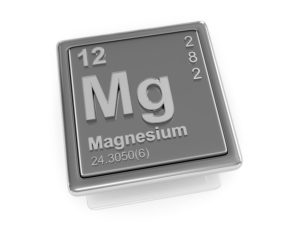
Magnesium assists in converting energy supplied by food to a useable form to produce adenosine triphosphate (ATP). Your primary cellular fuel source made within mitochondria. Magnesium is also needed for the synthesis of RNA and DNA.[i]
In your brain, magnesium regulates the activity in neuron ion channels. These channels are like tiny electrical switches. Governing the flow of neurotransmitters within neurons.
Magnesium also regulates brain synaptic plasticity. Which is critical for learning and memory.
Magnesium is critical to all of your body’s electrical and electrochemical activities. It’s involved in muscle contractions, heart rhythm, nerve function and brain cell activity.
Low blood magnesium levels show up as seizures, hypertension, stroke, migraines, and ADHD. It can also result in insulin resistance and type II diabetes.
Magnesium helps:
- Neuroplasticity: Magnesium controls the ion channels in brain cells. These tiny electrical switches control the transmission of electrical signals within and between neurons. Directly regulating learning and memory.
- Brain Energy: Magnesium is necessary for ATP synthesis. It’s needed for the Krebs cycle that turns sugar and fat from your diet into ATP. The primary fuel source produced within mitochondria in brain cells.
- Neuroprotectant: Low levels of magnesium in your diet correlate to a high incidence of neurodegenerative disease.
What is magnesium?
Magnesium plays an essential role in neuroplasticity and ATP production which is fundamental to learning, memory and cognitive function.[ii]
Magnesium is the 4th most abundant mineral in your body. But many of us in Western society are living with a magnesium deficiency. And most are unaware of this deficiency.[iii]
Dietary Magnesium Intake
Magnesium in our diet comes from foods like green leafy vegetables, beans, nuts, seeds, whole grains, poultry, beef, and salmon. Tap, mineral and bottled water also used to be good sources of magnesium. But varies by brand, source and if the magnesium has been filtered out during processing.
Needless to say, there used to be many magnesium rich foods that played an important role in your magnesium status and intake. But now most need to get magnesium chelate by using a supplement every day.
Magnesium is an essential part of neuroplasticity. Brain plasticity is the ability of your neurons to make cell-to-cell connections to form and regulate learning and memory.
With aging, or insufficient magnesium in our diet, we lose brain plasticity which results in a loss of cognitive function.[iv] This is why a young person, with an active, flexible brain easily catches new ideas. And simply thinks faster than a person whose brain has lost plasticity and is more fixed in their patterns.
Magnesium is also crucial to synthesizing ATP (adenosine triphosphate). The primary energy source produced within mitochondria in every one of your cells. Including the brain.
ATP must be bound to a magnesium ion (Mg-ATP) in order to be biologically active. This is critically important to how your brain’s mitochondria and cells use ATP. Including the synthesis of DNA and RNA.
To put this in perspective, over 300 enzymes and over 600 enzymatic reactions require the presence of magnesium ions for their catalytic action. Including all enzymes utilizing ATP.
Magnesium is even involved in how the other nootropics and dietary supplements in your stack are utilized by cells in your brain. The bottom-line is magnesium could be one of the most important additions to any nootropic stack.
How does Magnesium Work in the Brain?
Magnesium boosts brain health and function in several ways. But two in particular stand out.
- Magnesium is critical for neuroplasticity. Your brain is capable of forming new connections between neurons. When you take in new information, a signal is sent across the synaptic space between neurons. The ability of your brain to form these new connections is referred to as neuroplasticity.
This neuroplasticity is how learning and memories are formed. When these signaling pathways break down, memories fade. And you start to forget simple things like people’s names or phone numbers.
A simple example of how this works is reading this article. As you read this, your brain is forming and reforming new neural connections. When things aren’t optimal, you find yourself reading and re-reading sentences.
Magnesium is critical for maintaining this neuroplasticity. And your ability to learn and form memories. Magnesium ions control the ion channels, or electrical switches for this signaling.[v]
The more signals that these ion channels transmit, the stronger the connections between neurons. And the stronger the formation of the resulting memory.
Many studies demonstrate the detrimental impact of insufficient magnesium on optimal cognitive function.[vi]
- Magnesium is required for ATP synthesis. ATP (adenosine triphosphate) is the main energy source produced within mitochondria in brain cells. 20% of your body’s total ATP is located in your brain.
For ATP to be biologically active, it must be bound to a magnesium ion (Mg-ATP). [vii] About two thirds of your brain’s energy budget is used to help neurons send signals to neighboring neurons. The remaining third is used for housekeeping, or cellular maintenance.
Wei Chen, a radiologist at the University of Minnesota Medical School was co-author of a study on the brain’s use of ATP. The team used magnetic resonance spectroscopy (MRS) to measure the brain’s energy production during shifts in activity.
Their study on lab rats noted that when the rats were knocked out, they produced 50% fewer ATP molecules than when mildly anesthetized. Chen noted that the ATP produced when the brain is inactive goes to cell maintenance.[viii] This housekeeping is important for keeping the brain tissue alive.
The other two thirds are needed for other cellular processes including recharging neurons so they can fire. And create the electrical signals needed for neuron communication. Required for learning, memory, recall and cognition.
Without magnesium, your brain cannot produce ATP, and all brain function breaks down.
How Things Go Bad
As we get older, our brain chemistry and metabolism changes.
↓ ATP levels decline in mitochondria
↓ Cognition, learning, memory and recall decline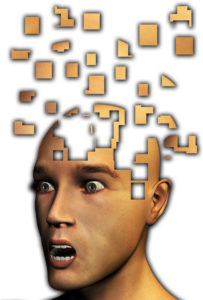
↓ Brain cell plasticity declines
↓ Free radicals damage brain cell mitochondria
All of these changes can happen at any age. And can be a result of not getting an adequate supply of magnesium.
So magnesium supplementation can help for age-related cognitive decline, as well as anyone who wants to boost cognition, learning, recall and memory.
Magnesium Benefits
Magnesium plays a critical role in supporting neuroplasticity which is fundamental for a youthful, flexible brain. A brain that is optimized to support cognition, learning and memory.
Raising brain magnesium levels has been proven to restore neuroplasticity and improve cognitive function.[ix]
Magnesium deficiency has been associated with Alzheimer’s Disease. Scientists have found that treatment with magnesium-L-Threonate decreases β-amyloid deposits in the brain. And is able to rebuild signaling pathways in neurons helping to restore memory.[x]
And magnesium is required for ATP synthesis in brain cells. Providing the mental energy needed for cognition, memory, recall and learning.[xi]
How does Magnesium Feel?
 Most neurohackers report an increased level of focus, energy, memory, and cognitive ability when supplementing with magnesium.
Most neurohackers report an increased level of focus, energy, memory, and cognitive ability when supplementing with magnesium.
You should also experience an improved quality of sleep. And have an overall improvement in mood.
Magnesium Clinical Research
One of most common reasons we use nootropics is to boost memory and mental energy. Memory loss drastically reduces quality of life. And simple brain fog makes it difficult to accomplish the simplest of tasks.
Research has shown that magnesium is involved in memory, learning and cognition on several levels. And supplementing with magnesium is one of the most fundamental things you can do to boost cognition.
Magnesium improves long-term memory
Synapses in the hippocampus and other areas of your brain strengthen the more they’re used. Even brief repetitive activity results in a substantial increase in synaptic strength. The results can last for several hours. Or even weeks afterwards. This is called ‘long-term potentiation’.[xii]
Several studies have been conducted on magnesium supplementation and its effects on memory in the last 20 years. With positive results. This study on aged and young rats found that adding magnesium to their food improved learning.[xiii]
Magnesium relieves depression
Researchers have found magnesium works in the hippocampus to suppress the release of the stress hormone ACTH (adrenocorticotropic hormone). This is the hormone that tells your adrenal glands to release more cortisol and adrenaline.
Too much cortisol eventually damages the hippocampus in the brain. This causes a negative feedback loop which results in even more stress. Which is toxic to the brain and your entire body. And one of the causes of chronic depression.
A study was done with 5,708 people aged 46-49 and 70-74 years old in Norway. The aim of the study was to examine the association between magnesium intake and depression and anxiety.
The researchers concluded that low magnesium intake is related to depression. And they stated, “These findings may have public health and treatment implications.”[xiv]
Another study done with 12 subjects found that magnesium supplementation improved sleep and lowered the stress hormone cortisol. Concluding that magnesium has “possible efficacy… as a mood stabilizer”.[xv]
Magnesium may relieve symptoms of ADHD
Magnesium in the treatment of ADHD is becoming more mainstream. And there is a growing body of research that supports the idea that one of the factors causing ADHD is a lack of magnesium.
A study in Poland showed that 95% of the children examined with ADD or ADHD were magnesium deficient.[xvi]
Magnesium Recommended Dosage
Recommended magnesium dosage in most common forms is 400 mg per day. But the problem is most magnesium supplements don’t work well as a nootropic. Because they don’t cross the blood-brain barrier.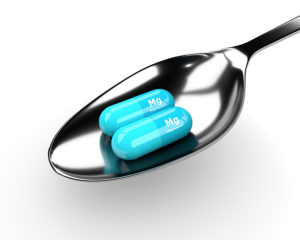
Research begun at MIT by Dr. Inna Slutsky came up with a new magnesium supplement called Magnesium-L-Threonate (MgT). This new magnesium compound easily crosses the blood-brain barrier.[xvii]
This form of magnesium was patented and now produced by MagteinTM Science. Several supplement companies sell magnesium with this branded form of magnesium.
Recommended dose of Magnesium-L-Threonate is up to 1 gram per day to avoid magnesium deficiency.
Chelated magnesium and lab-grown magnesium are suitable alternatives and covered in more detail below.
Magnesium is water-soluble so you don’t need to take it with a meal, or healthy fat.
Magnesium Side Effects
Most forms of magnesium can cause diarrhea, and bloating, and can lower high blood pressure if used in excess. So, be careful if you are using meds to lower blood pressure because using too much magnesium can mess with how this med works.
Magnesium-l-Threonate contains less elemental magnesium per dose and should not cause gastrointestinal upset.
Best type of Magnesium to buy
Magnesium is sold as magnesium aspartate, Bisglycinate, citrate, lactate, oxide, chloride, Taurate, magnesium L-Threonate, pidolate, magnesium citrate, and magnesium sulfate. I suggest avoiding magnesium oxide or citrate for nootropic use because they cannot easily cross the blood-brain barrier.
Depending on the type of magnesium; it comes in capsules, chewable tablets, powder, extended release tablets, or in a liquid solution.
Magnesium oxide is widely available in supermarkets, drug stores and vitamin shops. It’s popular because it’s cheap to manufacture. But it’s not chelated, and your body does not recognize it as a mineral it can readily use.
As an individual supplement, the patented form of magnesium-l-Threonate (MgT) called MagteinTM easily crosses the blood-brain barrier. And is recommended because even in high doses does not cause diarrhea.
Most multivitamins include a small amount of magnesium oxide which is useless as an ingredient.
A far better option is Click for Performance Lab® Magnesium providing 150 mg elemental magnesium. One dose is 3 NutriCaps® Pullulan Capsules with a little Nu-FLOW® Rice Concentrate used as a flow agent.
One of the many benefits of magnesium as a nootropic is in helping you fall asleep and stay asleep. But you need higher doses of magnesium to accomplish this. And I get my extra magnesium from …
Click for Performance Lab® Sleep which contains a combination of magnesium BiGlycinate, magnesium Taurate, and NutriGenesis® magnesium (100 mg). This sleep stack also contains L-Tryptophan (200 mg), CherryPURE® Tart Cherry Concentrate (500 mg), and Lemon Balm Extract (200 mg).
The magnesium in this sleep stack works with L-Tryptophan to help synthesize serotonin which then produces melatonin in your brain. Tart Cherry is a natural source of melatonin. And Lemon Balm helps boost the use of GABA in your brain. I highly recommend this nootropic sleep stack, and you can find my full review here.
Nootropics Expert Recommendation
Magnesium up to 1 gram per day
 I recommend using Magnesium as a nootropic supplement.
I recommend using Magnesium as a nootropic supplement.
Your body does not make Magnesium on its own. So to get its benefits it needs to come from your diet. Or you must take it as a supplement.
Magnesium is especially helpful for boosting memory, learning, recall, mood and cognition.
Magnesium is also particularly useful to help alleviate some of the symptoms of ADHD. And to help restore memory caused by neurodegenerative disease like Alzheimer’s.
While most forms of magnesium are helpful for overall health, most are not very helpful for cognitive health. So choose your magnesium supplement wisely and perhaps even pair with Vitamin D to avoid Vitamin D deficiency.
Magnesium is also useful to help you fall asleep and stay asleep. I recommend my favorite sleep stack Click for Performance Lab® Sleep which has magnesium, L-Tryptophan, CherryPURE® Tart Cherry extract, and Lemon Balm extract.
As an individual nootropic supplement, I recommend magnesium-L-Threonate (MgT). Because MgT has been proven in the lab to easily cross the blood-brain barrier. And to boost cognition.
And if you are counting on getting at least some magnesium from your multivitamin supplement, know that most brands use magnesium oxide which is cheap and not bioavailable.
I use and highly recommend: Click for Performance Lab® Magnesium

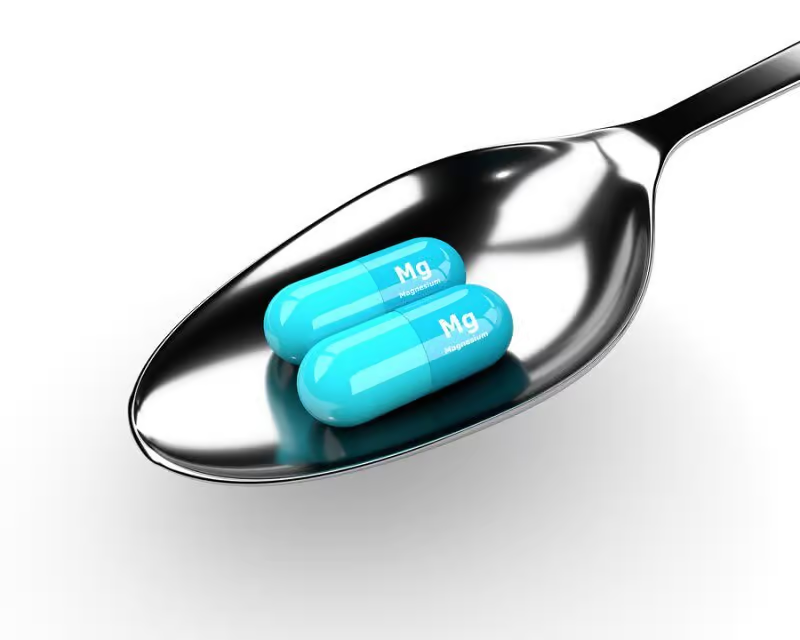
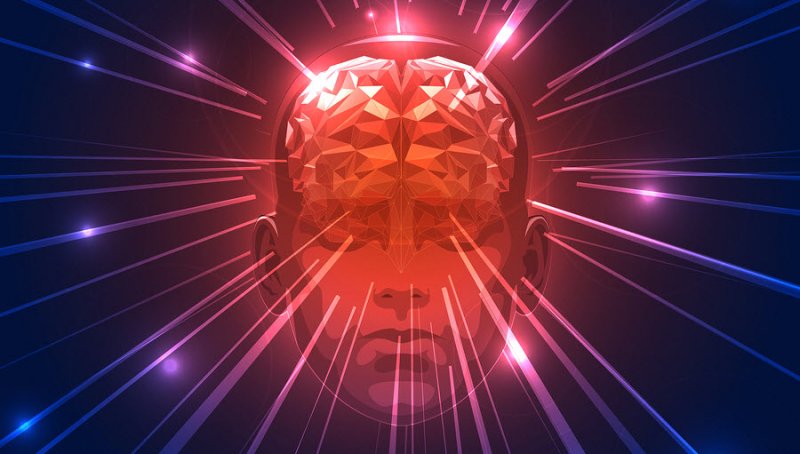





Join The Discussion - 273 comments
Andrew Richardson
September 29, 2023
I ordered this
NOW Foods, Magtein, Magnesium L-Threonate
however not sure if i should look at the elemental dosage or
its say 144MG then 2000mg im confused
2000mg should like a lot should i half the pill?
David Tomen
October 1, 2023
Andrew, you are overthinking this. NOW Foods recommends 3 capsules. All you need to worry about is if you are getting enough magnesium every day. And you’ll know it’s too much if you get diarrhea. If that happens cut your dose back by a capsule and see if that works.
Consistent daily use is how to get the benefits from these supplements. Not just reading or researching them. The key to success with nootropics is willingness to experiment. But once you find what works then you just keep on doing it!
KELLIE J OBRIEN
September 24, 2023
Hi David,
I suspect I may be magnesium deficient due to long-term usage of omeprazole for the treatment of GERD. I also struggle with OCD and panic attacks.
A couple of days ago I took 260 mg of magnesium citrate and the next morning I had some of the worst anxiety I have ever experienced, as well as a strong sense of depersonalization and dissociation which I have not felt before or since. This has caused me to feel a lot of trepidation surrounding trying magnesium again. Everything I read says that magnesium is calming and helps so much with anxiety, but that was not the case for me. Any ideas as to why, or a different form of magnesium that would not have this effect?
Thanks so much!
David Tomen
September 26, 2023
Kelly, magnesium citrate has a hard time crossing the blood-brain barrier. It is why a couple of university professors came up with Magnesium L-Threonate to solve that problem. I suggest trying a chelated form of magnesium like that if you are brave enough and see if it works for you. But one thing on dosages and this is an educated guess on my part. It seems to me that for something like magnesium and if you are using the correct form AND you are using it every single day you should be able to keep your levels up even at a lower dose. It will take a while to build your levels but once you are there it’s a maintenance issue. Just keep on doing it.
Andrew Richardson
July 12, 2023
if I use epsom salt magnesium for a bath its it safe to take a magnesium supplement later that night as its a different form later that night for sleep as i use magnisum glycinate for sleep but if i have a bad with it it absorb into the skin into the blood so would it be safe or just avoid if i have had a epsom salt magnesium for a bath
David Tomen
July 14, 2023
Andrew, as far as I can tell Epsom salts do not cross into the brain. So, it should be safe to use a separate chelated form of magnesium for sleep. Check the Side Effects section above so you know what to look for with too much magnesium.
Nina
July 5, 2023
Hi David,
Could you please comment about Magnesium orotate and Zinc orotate?
David Tomen
July 8, 2023
Nina, when magnesium or zinc is bound to orotic acid it is used as a transporter. for magnesium orotate it helps restore someone who is magnesium deficient (https://pubmed.ncbi.nlm.nih.gov/16366126/). And when bound to zinc it provides a similar benefit to this mineral.
Nina
July 10, 2023
Thank you David. You’re awesome!
Andrew
May 27, 2023
is it safe to take Magnesium Sulfate / Epson salts as an oral magnesium I read it can block L-type calcium ion in the brain which is a cause of tinnitus and it a potent anti inflammatory
if so what dosages would you recommend
David Tomen
May 28, 2023
Andrew, I recommend using only chelated forms of magnesium to get its nootropic value. Because non-chelated forms cannot get into your brain.
But to answer your question directly, you’ll need to provide a link to a peer-reviewed clinical study supporting the statement you made. Otherwise, I cannot comment on it because I have seen no evidence to this in my research.
Andrew Richardson
June 2, 2023
Not sure if your site is working correctly I asked asked but cant see any response or my comments so ill ask here, is taking Fat soluble vit c long term say
Ascorbyl Palmitate 500mg twice daily safe been its fat soluble
David Tomen
June 3, 2023
Andrew, were are working on the site and making it better. I hope. But that is not the reason you haven’t been getting a timely response to your questions. I take responsibility for it because I had surgery a couple of weeks ago. And the recovery has been difficult. So, I have not been keeping up with comments and questions like usual. You have my apologies for that.
You need to be very careful with fat-soluble ingredients because the unused portion is stored in fat cells. Taking too much means it builds up in your system. And our body and brain was not designed to cope with excess. Too much is called hypervitaminosis and could send you to the ER. This is from the U.S. Pharmacy site: https://www.uspharmacist.com/article/hypervitaminosis-a-global-concern
Andrew Richardson
June 4, 2023
that’s why I’m a little confused as there is not much information on fat soluble vit c I’m taking only 500Mg of the fat soluble one once per day do you think 3 months at that dosage should be safe, I was thinking of swapping to the water form once a week then the next week back to the fat form just to not over do anything!
i always keep it around 500MG daily never exceed that!
Cheers
David Tomen
June 5, 2023
Andrew, I found in my research into Vitamin C that are body can only use 200 mg at a time (https://pubmed.ncbi.nlm.nih.gov/9356534/). So mega-dosing Vitamin C, even though some naturopaths recommend it, does not make any sense. To me at least.
If you are going use high amounts like 500 mg once or even 3-times per day anyway, I highly recommend the water soluble form of Vitamin C. You body only recognizes the active form of Vitamin C which is L-ascorbic acid. So why not use it instead of the fat soluble form?
Claudia
May 21, 2023
Hi David,
I would like to hear your thoughts about what I read in an article about Magnesium Bisglycinate. It supposedly is more absorbable because it is chelated to glycine. The glycine is supposedly also know to calm and help with sleep and helps form collagen in your skin. And help the liver because it helps bile acids do their work. After reading this I’m not sure anymore what type of magnesium I should buy
David Tomen
June 5, 2023
Claudia, I suggest using Magnesium Bisglycinate for all the reasons you just mentioned.
Claudia
June 12, 2023
Thank you
Jonathan
April 8, 2023
I have a question. I read a lot about magnesium threonate being the ONLY form of magnesium that can cross the BBB. But I have also read that there are other forms that can do this as well. I read a study that showed magnesium taurate increased brain tissue levels of magnesium. Do you know anything about this David? Thanks
David Tomen
April 9, 2023
Jonathan, Magnesium L-Threonate was developed by two university professors because they wanted a form of magnesium that more easily crossed into the brain.
But common sense tells us that other forms of chelated magnesium must also get into the brain. Maybe not as efficiently. But if it did not we would all be dead.
Ryan Smith
March 28, 2023
I have decided to take L-threonate (product below) based on this article.
I am slightly confused about the dosage, however?
It says that a serving of three pill is 144mg of magnesium, but that it comes from 2000mg of Magtein L-threonate.
Based on your dosage recommendation of 1gram a day should I be taking 1 and a 1/2 pills to get 1000mg of Magtein L-threonate?
Thank you for the help!
Life-Extension-Neuro-Mag
David Tomen
March 31, 2023
Ryan, 3 capsules include 144 mg magnesium and the rest is Threonic acid to help deliver the magnesium across the blood-brain barrier.
You likely need a lower dose (i.e. 3 caps) of this supplement because of its delivery system which is more efficient than other chelated forms of magnesium.
You’ll know you are getting too much magnesium if you get side effects like diarrhea or muscle spasms. IF that happens then you know to cut back.